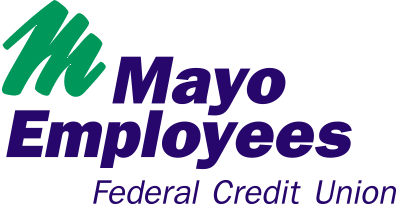
The hustle and bustle of the holiday season comes plenty of things to be joyful about, but it is also a prime time for scams and fraud. Keep yourself and your family safe by being aware of common scams.
Chances are you know someone who has experienced fraudulent charges on a credit card or fallen victim to a phone or online scam. That someone may even be you! To keep fraudsters out of your life and wallet, we’re highlighting common scams and offering ways to protect yourself against them.
Fraudulent Calls
There are a vast amount of scams that are targeted over the phone. A common one involves someone calling and posing as a company or possibly even the IRS, claiming you owe money or back taxes. If you receive a call like this, hang up as soon as you can and don’t provide any personal information. Once you’ve hung up, find the organization’s information yourself and contact them directly to verify if you owe any money. If the claim is legitimate, there will be a documented record. If it is fake, you can help alert the organization of the scam and your report could help other people who might be affected.
Scammers will also use phone communication to get access to your accounts with an emotional plea. For example, someone will call and say they are in the military and need to deposit a disability check but have no account. They will ask you to deposit the check into your account and pay them the money through a cash app or gift card, only to have the check bounce from your account later. The holidays can be an emotional time, and put us in the spirit of giving and helping. Scammers (and sometimes even people you know personally) will use this to try and take advantage of you.
Another red flag is if the person on the other end of the line seems rushed to get your money. No legitimate business will demand to be paid immediately over the phone. In most cases, you would have received notices of late payments prior to the call. Anyone who is rushing you to pay is likely a scammer.
Verify the authenticity of any number you receive a phone call from. Even if a real phone number matches up, it could still be a scam, called spoofing. Spoofing is when someone deliberately fakes their caller ID information to disguise their identity.
Still not sure who you’re talking to? Hang up and look up the organization’s phone number yourself. If the information they were calling about is correct, another representative will be able to help when you call back.
Most mobile phones come with caller ID and scam protection preinstalled. It is a good idea to use this as a first line of defense against fraud; don’t even answer if your phone recognizes a call as a scam.
Gift Card Scams
There are a few frequent scams involving gift cards, and that’s partially because gift card payments work like cash. When you give out the information for an activated gift card, it’s like dropping cash on the street. There typically isn’t a way to trace where it goes, making it an ideal method for scammers to ask for your money.
If you are buying a gift card, always save your receipt and make sure to look closely at the card before buying. An altered card will show signs of defect, like an exposed PIN, an open wrapper or a different sticker covering the card’s activation code. If you see any irregularities, pick out a different one card and give the defective one to an employee to handle.
Reward Program Scams
If you have any kind of credit card or discount card, you likely are offered some kind of rewards program. If a scammer gets access to your credentials for these accounts, using those legitimately-earned rewards is an easy way to access gift cards and other rewards. The best way to protect your points is to protect your overall account; use multi-step authorization and change your passwords regularly. Don’t repeat passwords on multiple sites, as it makes it even easier for scammers to access more than one of your accounts, and avoid public Wi-Fi when you can.
Disappearing Packages
As online sales pick up for the holidays, so do package theft and delivery scams. To keep your deliveries safe, consider using a home security camera. You can also sign up for email and text alerts to get a notice when packages arrive, which might help you remember to bring them inside. Consider having your deliveries sent to a friend or relative if you know you won’t be home.
If you get a call or email claiming your package was unable to be delivered, be suspicious. A scammer may be impersonating a mail carrier and say you are getting a gift from someone. If asked for personal or credit card information for the delivery, don’t respond. If you aren’t aware of the package, odds are it doesn’t exist.
Computer Hacks
We use our computers for a variety of things, and the data from all of that activity is stored in a variety of ways, making it a prime place for scammers to target. If you receive any offers or suggestions to let someone come in and secure your computer, fix it or clean it up to make it run better, be skeptical. If you think your device might need some professional attention, take it to a trusted business instead of an organization soliciting you.
Fake Charities
As the holiday season begins, many people find themselves giving to more charitable causes. However, some of these charities may not be as legitimate as they claim. Scammers often will make you feel pressured or rushed to donate, so trust your instincts if it seems dishonest. You can always do your research and donate at another time.
How to make sure your money is going to a trustworthy source:
- Use a research organization, such as Charity Navigator or GuideStar.
- Be wary of crowdfunding sites – it’s best to only donate to people you know personally.
- Review your bank account and credit card statement after you donate.
Make sure your holidays are full of joy with these simple ways to protect yourself against scams. When in doubt, reach out! We are happy to help answer any questions you have about suspicious actions regarding your accounts. Give us a call at (800) 535-2129 or (507) 535-1460.
